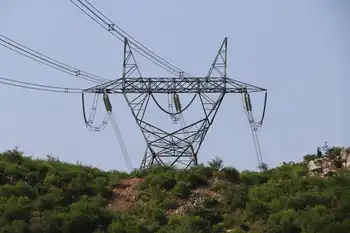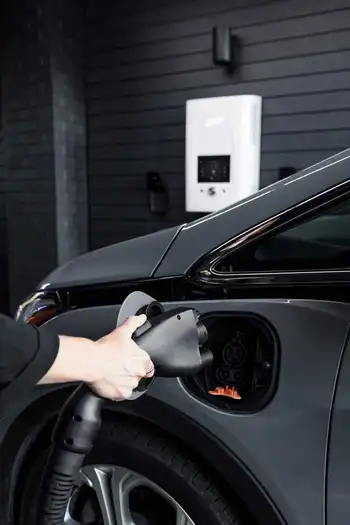Recession offers rewards for those who innovate
- What do nylon, synthetic rubber, the electric washing machine and the fluorescent lamp have in common? They all came to life during the Great Depression of the 1930s. These innovations, and others, unleashed a consumer and industrial revolution that helped to lift the United States from the deepest economic downturn of the last century.
Eight decades later, the world faces a recession that could turn into a 1930s-style depression, with vanishing profits, failing corporations and mass unemployment. What will restore growth?
It's impossible to say for sure. But corporate history shows that companies which avoid slaughtering their R&D budgets when the economy goes into the tank improve their odds of becoming future champions. The pleasant byproduct of such innovation, of course, is a healthier economy.
Take General Electric. Born in the 1890s, GE used innovation to power itself to the top ranks of industrial America. The world's first radio broadcast, the first electric kitchen range (the Hotpoint), and the ductile tungsten filament for lighting emerged from GE labs before the First World War.
When the Depression hit in 1929, GE could have flung its chemists and engineers onto the employee scrap heap to save money. It kept going instead. The electric washing machine, mouldable plastic, small appliances such as the "Juice-O-Mat," and the florescent lamp were developed in that decade.
DuPont was another Depression-era innovator. Even as its sales were falling in the early 1930s, the company mustered the courage to boost R&D spending.
It invented nylon and a synthetic rubber called neoprene. While both are taken for granted today, they were among the century's greatest innovations. By the end of the 1930s, every airplane and car made in the United States had neoprene parts. The 1930s also saw the start of Hewlett-Packard and Polaroid.
Tom Nicholas of Harvard Business School said the 1930s, for all its hardships, was an unusually innovative period. "Although deep downturns are destructive, they also have an upside," he wrote last month in the McKinsey Quarterly. "The Depression-era economist Joseph Schumpeter emphasized the positive consequences of downturns: The destruction of underperforming companies, the release of capital from dying sectors to new industries, and the movement of high-quality skilled workers toward stronger employers. For companies with cash and ideas, history shows that downturns can provide enormous strategic opportunities."
Another era notable for innovation was the 1970s, when the United States was clobbered by the cost of paying for the Vietnam War and by two oil shocks. Apple and Microsoft were born then and went on to launch the personal computing industry.
The next blockbuster innovation is anyone's guess. If a talented bunch of executives, engineers and scientists wanted to increase the odds of success, they would try to invent a product or service that is useful, perhaps indispensable, drives down costs for consumers and business, is affordable and environmentally sustainable.
Innovation could come in any area, from biotechnology to communications software. It could, for example, be the next generation of TV. The British are experimenting with 3D digital televisions, which the UK HD (high definition) Forum thinks will be the greatest change since the introduction of "the talkies" - movies with sound - in 1927.
It could be a lot of little things that, taken collectively, have enormous impact. San Diego got walloped by U.S. defence spending cutbacks in the 1970s and 1980s. The jobless engineers and scientists didn't leave town; they built a new economy around life sciences and aerospace, while not ignoring defence innovation.
Imagine if Detroit, a slow-motion suicide since the 1970s, when imported Japanese cars first made a dent in the market, had been blessed with the same creative thinking. If there is one popular product that is in sore need of reinvention, it is the car.
Compare the car with powered flight. The first airplane with an engine took off in 1903. Sixty-six years later, an Apollo rocket took the first men to the moon. And the car? Karl Benz is generally acknowledged to have invented the first modern car, in 1885. It used a four-stroke gasoline engine. Well more than a century later, the automobile's propulsion system is essentially unchanged. Fuel economy is pathetic. The Ford Model T, produced in the millions between 1908 and 1927, had the aerodynamics of a sofa but got a decent 25 miles a gallon. In the middle of this decade, the average fuel economy of the Ford fleet (cars, SUVs and light trucks) was 23 miles a gallon. This is not progress.
Last month, DuPont chairman and CEO Charles Holliday Jr. told the Detroit Economic Club that the U.S. government and the car makers should launch the "Detroit Project" to develop a totally new, fuel-efficient car.
"If all of us with a stake in the auto industry join forces in a compelling way, we believe we can create a car of the future that could positively impact the two things we care about today - the environment and the economy," he said.
Pouring money into a new car would hit all the right buttons. For most North Americans, a car is an essential product. For the United States (and Canada) it is an essential industry. Making this product emissions-free, or close to it, might spare Detroit from oblivion and remove one of the planet's main sources of carbon dioxide output. It might also bring the recession to an early end.
Too bad funding bailouts are taking precedence over funding innovation.
Related News

Germany considers U-turn on nuclear phaseout
BERLIN - The German chancellor on Wednesday said it might make sense to extend the lifetime of Germany's three remaining nuclear power plants.
Germany famously decided to stop using atomic energy in 2011, and the last remaining plants were set to close at the end of this year.
However, an increasing number of politicians have been arguing for the postponement of the closures amid energy concerns arising from Russia's invasion of Ukraine. The issue divides members of Scholz's ruling traffic-light coalition.
What did the chancellor say?
Visiting a factory in western Germany, where a vital gas turbine is being stored, Chancellor Olaf Scholz…




